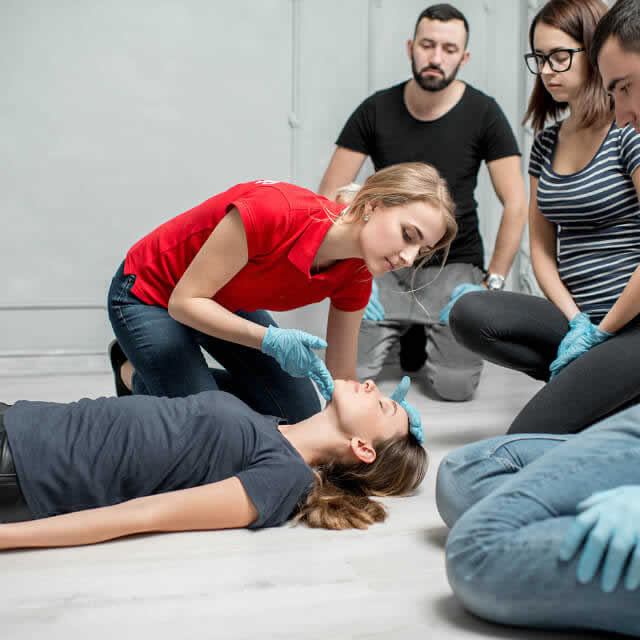
First Aid Responder Course
This course provides trainees with the necessary practical skills, knowledge, and confidence to give effective life support, diagnose and treat injuries or illness, and maintain the care and comfort of a patient until the arrival of emergency medical services. This course also includes training in the use of an Automated External Defibrillator (AED) and the skills necessary to perform Cardio-Pulmonary Resuscitation (CPR).
Course Objectives
- Recognise and Assess the causes and effects of sudden illness and/or injury in a pre-hospital environment and call for emergency medical services.
- React to such pre-hospital emergencies
- Respond in a safe, effective, and appropriate manner to such emergencies utilising the First Aid Response skill set.
- Record and Report actions and interventions taken while responding to and managing such incidents and during handover to emergency medical services.
- Retain a professional and caring attitude in their performance as First Aid Responders.
Course Content
- Patient Assessment
- Incident Procedures
- Cardiac First Response (CFR) Community
- Common Medical Emergencies
- Injury Management & Shock
- Care of an Unconscious Patient
- Burns & Electrical Injury Care
- Hypothermia & Hyperthermia
- Information management
- Communications
- Well-Being of a First Aid Responder
Course Details
- Course Duration: 3 days (9:30am-4:30pm)
- Maximum Participants: 8
- Certificates Valid: 2 years
Cardiac First Responder Course
A cardiac first responder (CFR) is a person trained in cardiopulmonary resuscitation and in the use of an automated external defibrillator (AED). With this training you can respond to someone who has suddenly collapsed.
Course Objectives
This cardiac first responder course can play a critical role in keeping a person alive until the commencement of expert medical care.
Course Content
- Recognise the signs of a life threatening emergency
- Respond in an effective, safe and appropriate manner,
- Appropriately use, if required, an automated external defibrillator (AED) during a cardiac arrest.
- Report and Record their actions and interventions appropriately and handover to emergency medical services
